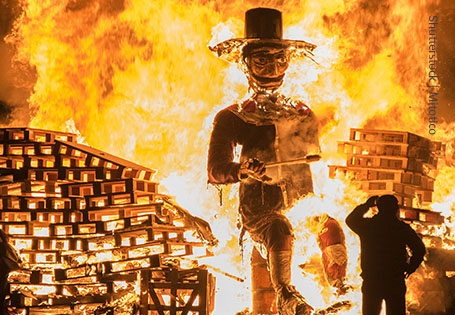The Significance and Celebration of Bonfire Night

Introduction to Bonfire Night
Bonfire Night, also known as Guy Fawkes Night, is celebrated annually on the 5th of November in the United Kingdom. This occasion commemorates the foiling of the Gunpowder Plot of 1605, when Guy Fawkes, along with other conspirators, attempted to blow up the Houses of Parliament. The significance of this night lies not only in its historical roots but also in how it brings communities together across the nation in recognition of a shared cultural heritage.
Historical Background
The origins of Bonfire Night can be traced back to the discovery of the plot and the subsequent execution of Fawkes and his accomplices. On the night of November 5, people lit bonfires to celebrate the King’s survival and the failure of the plot. Over the years, fireworks have become synonymous with the event, as communities gather to enjoy displays, food stalls, and family activities. The tradition has evolved, yet the core message of gratitude for safety and resilience remains unchanged.
Modern-Day Celebrations
Today, Bonfire Night is marked by public firework displays, bonfires, and often the burning of effigies of Guy Fawkes. Cities like London, Manchester, and Edinburgh host large-scale events that attract thousands of spectators. Local councils and communities organise festivities to ensure safety and enjoyment, often implementing measures to minimize fire hazards and ensure that families can participate in the celebrations. However, the year 2023 has seen some changes in how these events are conducted, particularly in urban areas where noise restrictions and safety protocols are more stringent.
Community Impact and Future Trends
Bonfire Night fosters a sense of community spirit, with neighbours coming together to enjoy the sights and sounds of the festivities. Its celebration offers local businesses opportunities for growth, as food stalls and merchandise become part of the attractions. However, there is an increasing focus on sustainability, with some councils implementing eco-friendly practices and advising on safe waste disposal. As the UK looks towards a greener future, Bonfire Night may evolve further, incorporating more environmentally friendly practices while retaining its cultural significance.
Conclusion
In conclusion, Bonfire Night remains an important date in the British calendar, steeped in history and tradition. While the celebrations have transformed over the centuries, the essence of coming together to remember an event that shaped the nation endures. Looking ahead, as society becomes more conscious of environmental impacts, the observance of Bonfire Night may adapt to accommodate these changes, ensuring it remains relevant and cherished for future generations.









